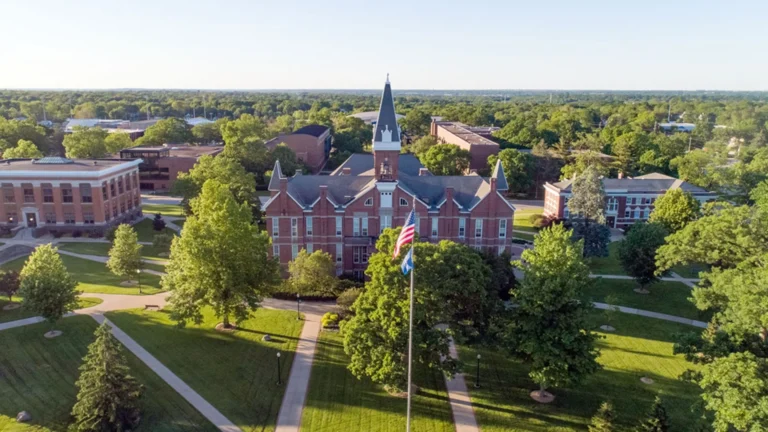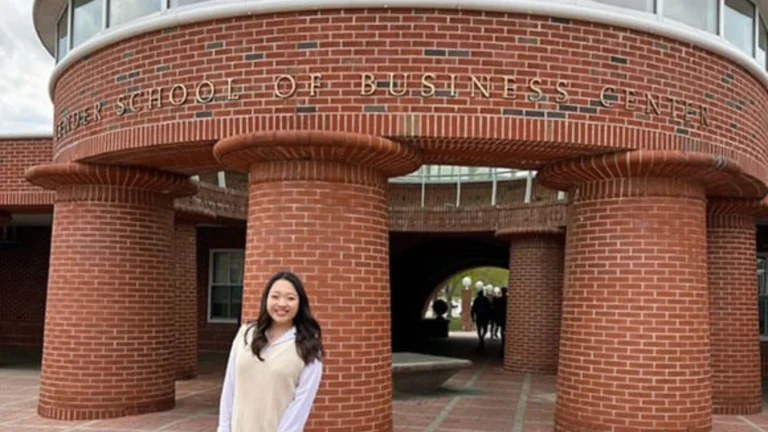A Beacon of Excellence in Texas
The University of Houston (UH) is a renowned institution of higher education located in the heart of one of the most vibrant and diverse cities in the United States. A Beacon of Excellence in Texas
Established in 1927, UH has grown from a small community college to a thriving research university that has become a source of pride and inspiration for the entire state of Texas.
The History of UH
The University of Houston’s roots can be traced back to 1927,
when it was founded as Houston Junior College, a private institution with just 200 students. Over the next few decades, the university underwent a remarkable transformation, expanding both in size and scope.
In the 1950s, the university began to offer graduate programs, and in 1963, it became a four-year institution. The 1960s and 1970s saw the university continue to grow, with the addition of several new colleges and schools,
including the College of Business Administration, the College of Education, and the College of Engineering.
The 1980s and 1990s were a time of significant expansion for the university,
with the construction of new facilities and the establishment of several research centers and institutes.
Today, the University of Houston is a thriving institution with over 46,000 students, making it the third-largest university in Texas. It is home to 13 colleges and schools, offering a wide range of undergraduate and graduate programs,
as well as several professional schools,
including the University of Houston Law Center and the University of Houston College of Medicine.
Academics and Research at UH
The University of Houston is renowned for its excellence in academics and research. The university offers a diverse range of undergraduate and graduate programs across its 13 colleges and schools,
including the College of Liberal Arts and Social Sciences, the College of Natural Sciences and Mathematics,
the College of Technology, and the College of the Arts.
In addition to its strong academic programs, UH is also a leading research institution,
with a focus on areas such as energy, health, and technology.
The university is home to several research centers and institutes, including the Texas Center for Superconductivity, the Cullen College of Engineering, and the College of Natural Sciences and Mathematics.
Student Life at UH
The University of Houston is known for its vibrant and diverse student life. With over 46,000 students from all over the world, the campus is a melting pot of cultures and experiences.
The university offers a wide range of extracurricular activities and student organizations, catering to a variety of interests and passions. From sports teams to student government, from Greek life to academic clubs, there is something for everyone at UH.
One of the most notable aspects of student life at UH is the university’s commitment to diversity and inclusion. The campus is home to a large and active international student population, as well as a thriving LGBTQ+ community and various cultural and ethnic student organizations.
The university also boasts a robust athletic program,
with several NCAA Division I sports teams, including the Houston Cougars football team, which has a long and storied history of success.
Conclusion
From its humble beginnings as a small community college to its current status as a leading research institution,
UH has come a long way in its nearly 100-year history.A Beacon of Excellence in Texas
Today, the university continues to push the boundaries of what is possible,
with a focus on innovative research, cutting-edge academics, and a vibrant and diverse student life.
As the University of Houston looks to the future,
it is clear that this institution will continue to be a beacon of excellence and a source of pride for the entire state of Texas.
The University of Houston (UH) is a premier public research institution that has carved out a reputation as one of the most dynamic and innovative universities in the United States. Located in the heart of the nation’s fourth-largest city,
UH has been a driving force in the cultural, economic,
and academic development of the Greater Houston region for nearly a century.
Established in 1927 as Houston Junior College, the university has undergone a remarkable transformation over the decades,
evolving from a small community college into a thriving research powerhouse with a diverse student body of over 46,000 and a growing global footprint. Today, UH is recognized as a Tier One research university,
a designation that places it among the top 3% of all colleges and universities nationwide.

But the University of Houston’s success is about more than just accolades and rankings. It is a story of resilience, innovation,
and a steadfast commitment to providing access to high-quality higher education for students from all walks of life.
Through its world-class academic programs,
cutting-edge research initiatives, and vibrant campus life,
UH has become a beacon of opportunity for the Houston region and beyond.
A Brief History of the University of Houston
The fledgling institution, which was initially housed in a downtown high school,
opened its doors with just 230 students and a handful of faculty members.
In the early years, the college faced significant challenges, including financial constraints and a lack of public support. However, the school’s visionary leaders refused to be deterred,
and over the next decade, they worked tirelessly to secure the institution’s future.
This transition not only provided the university with a more stable funding source but also allowed it to expand its academic offerings and begin granting four-year degrees.
The 1940s and 1950s saw UH continue to grow and evolve, with the addition of new colleges and schools,
including the College of Business Administration and the College of Education.
During this period, the university also began to establish a reputation for excellence in research, particularly in the fields of engineering and the sciences.
The 1960s and 1970s were a time of significant expansion and transformation for the University of Houston. The university’s enrollment skyrocketed, climbing from just over 14,000 students in 1960 to more than 27,000 by the end of the 1970s. This rapid growth was accompanied by the construction of numerous new facilities, including the iconic M.D. Anderson Library and the Wortham Theater Center.
In the decades that followed,
the University of Houston continued to build on its strengths, expanding its academic programs, enhancing its research capabilities,
and strengthening its ties to the local community.
Today, UH is recognized as a premier Tier One research institution,
with a diverse student body, world-class faculty, and a growing global reach.
Academics and Research at UH
The University of Houston is home to a diverse array of academic programs,
with 13 colleges and schools offering more than 300 undergraduate and graduate degrees.
From the liberal arts and sciences to engineering, business.
One of the university’s greatest strengths is its commitment to cutting-edge research. UH is classified as a “Tier One” research university by the Carnegie Classification of Institutions of Higher Education,
a designation that places it among the top 3% of all colleges and universities in the United States.
This recognition is a testament to the university’s extensive research portfolio,
which spans a wide range of disciplines, from energy and sustainability to health sciences and advanced materials.
well-equipped laboratories, and a talented and diverse faculty.
UH researchers have secured numerous prestigious grants and awards,
including funding from the National Institutes of Health, the National Science Foundation, and the Department of Energy.
The university’s Honors College, for example, offers a rigorous and interdisciplinary curriculum that challenges high-achieving
students to think critically and engage with complex global issues.
Similarly, the university’s award-winning online and distance learning programs provide flexible and accessible educational opportunities for students who may not be able to attend classes on campus.
One of the hallmarks of the UH academic experience is the university’s commitment to experiential learning. Through internships, co-op programs, and hands-on research opportunities,
students are able to apply their classroom knowledge to real-world challenges,
gaining valuable practical experience that prepares them for successful careers.A Beacon of Excellence in Texas








Thanks for sharing. I read many of your blog posts, cool, your blog is very good.